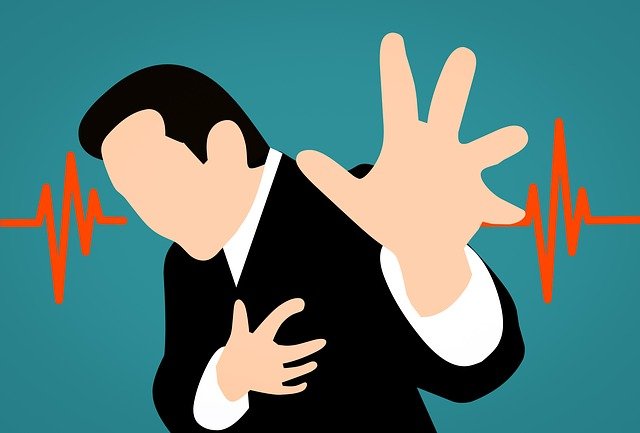
Sudden cardiac arrest is a sudden loss of blood flow resulting from the failure of the heart to effectively pump.
Its symptoms could include shortness of breath, fainting, fatigue, lightheadedness, chest pain, and heart palpitations.
But because there are often no warning signs before the condition occurs, it can be very dangerous for the patient.
Recent research has shown that ventricular fibrillation (v-fib) could cause most sudden cardiac arrests.
V-fib is a type of heart rhythm disorder. During v-fib, the ventricles (the heart’s lower chambers) don’t beat normally. Instead, they quiver very rapidly and irregularly.
When this happens, the heart pumps little or no blood to the body. V-fib is fatal if not treated within a few minutes.
Besides V-fib, other problems with the heart’s electrical system also can cause sudden cardiac arrest.
For example, sudden cardiac arrest can occur if the rate of the heart’s electrical signals becomes very slow and stops.
The sudden cardiac arrest also can occur if the heart muscle doesn’t respond to the heart’s electrical signals.
Certain diseases and conditions can cause electrical problems that lead to sudden cardiac arrest.
Several studies have suggested the four big causes of sudden cardiac arrest.
Structural Changes in the Heart
Changes in the heart’s size or structure may affect its electrical system.
Such changes include an enlarged heart due to high blood pressure or advanced heart disease. Heart infections also may cause structural changes in the heart.
Coronary Heart Disease
Coronary heart disease is a disease in which a waxy substance called plaque builds up in the coronary arteries.
These arteries supply oxygen-rich blood to your heart muscle.
Plaque narrows the arteries and reduces blood flow to your heart muscle. Eventually, an area of plaque can rupture. This may cause a blood clot to form on the plaque’s surface.
A blood clot can partly or fully block the flow of oxygen-rich blood to the portion of heart muscle fed by the artery. This causes a heart attack.
During a heart attack, some heart muscle cells die and are replaced with scar tissue. The scar tissue damages the heart’s electrical system.
As a result, electrical signals may spread abnormally throughout the heart. These changes to the heart increase the risk of dangerous arrhythmias and sudden cardiac arrest.
Coronary heart disease could cause most cases of sudden cardiac arrest in adults. Many of these adults, however, have no signs or symptoms of coronary heart disease before having a sudden cardiac arrest.
Physical Stress
Recent studies also show that certain types of physical stress can cause your heart’s electrical system to fail. Examples include:
Major blood loss.
Severe lack of oxygen.
Very low potassium or magnesium levels in the body. These minerals play an important role in your heart’s electrical signaling.
Intense physical activity. The hormone adrenaline is released during intense physical activity. This hormone can trigger sudden cardiac arrest in people who have heart problems.
Inherited Disorders
One of the inherited disorders is arrhythmias. It could pass from parents to children through the genes.
Members of these families may be at higher risk for sudden cardiac arrest.
Another inherited disorder is long QT syndrome (LQTS). LQTS is a disorder of the heart’s electrical activity. It makes you more likely to have arrhythmias
People who inherit structural heart problems also may be at higher risk for sudden cardiac arrest.
Copyright © 2019 Knowridge Science Report. All rights reserved.



